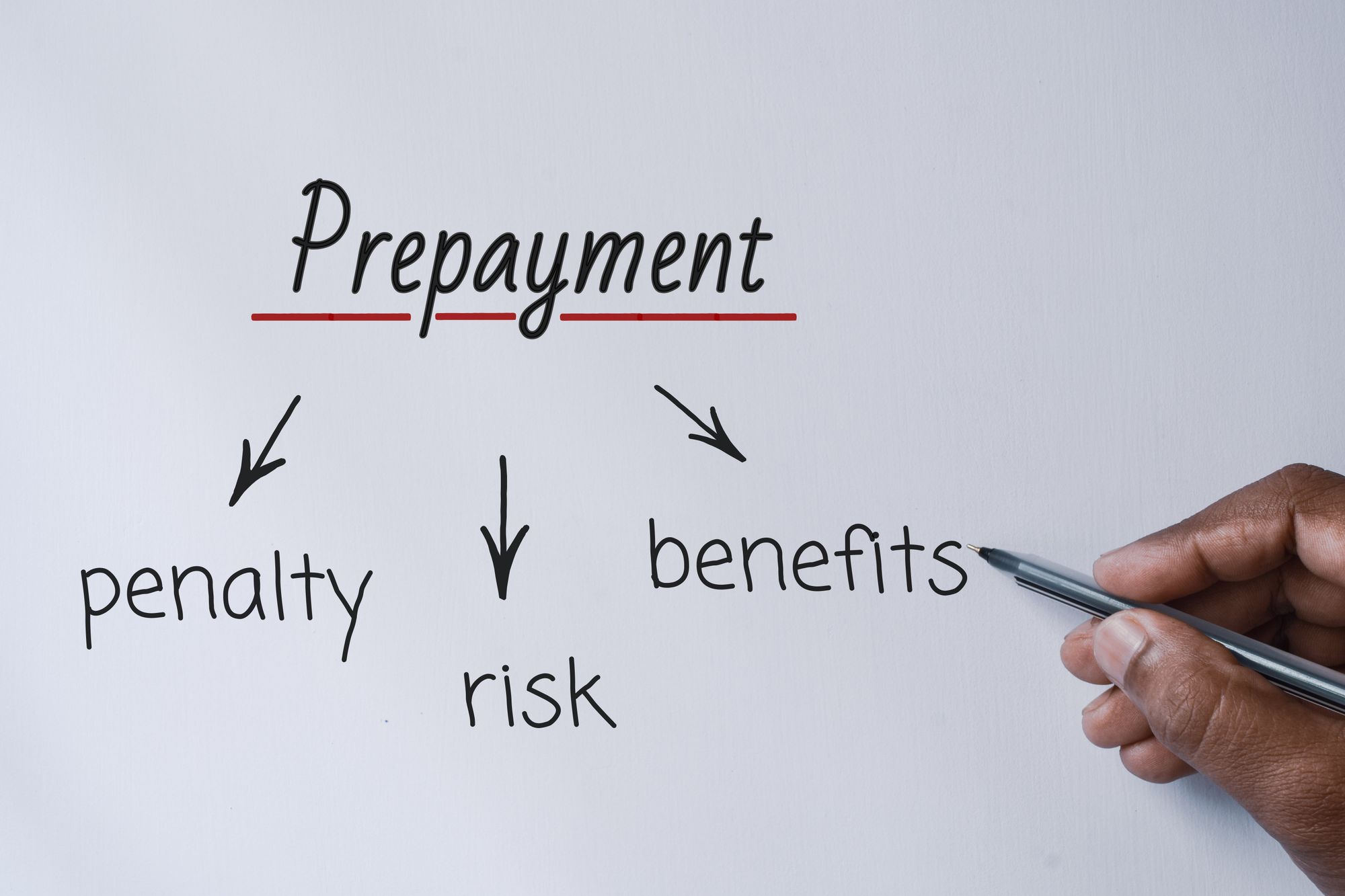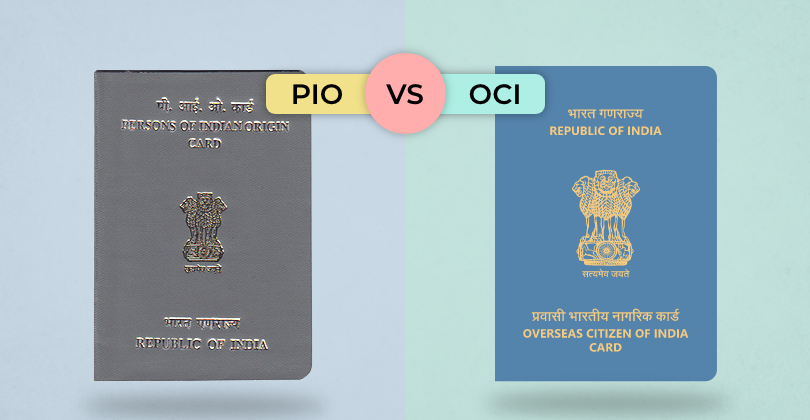Are you of Indian origin and living abroad? You've probably come across terms like PIO and OCI. These cards offer different benefits, but it can
Personal loans are a popular financial tool for meeting various needs, such as funding education, consolidating debt, or handling unexpected expenses. While they offer the convenience of quick access to funds, it is crucial for borrowers to understand the terms and conditions associated with these loans. One important aspect to consider is the prepayment penalty on personal loans.
In this article, we delve into what loan prepayment penalties are, how to determine if your loan has one, and the implications of prepayment on interest reduction and your credit score.
What is the Prepayment Penalty on Personal Loans?
A prepayment penalty, also known as an early repayment charge or exit fee, is a fee imposed by lenders when borrowers repay their personal loans before the stipulated loan tenure.
The primary purpose of this penalty is to compensate lenders for the interest they would have earned if the borrower had continued making payments per the original schedule. Essentially, it serves as a deterrent to borrowers who might want to clear their debts ahead of schedule. Understanding the prepayment penalty on a personal loan is crucial for borrowers seeking to manage their loans effectively.
📗 Related reading- What Are The Mistakes To Avoid While Taking An Instant Loan?
How Do I Know If My Loan Has a Prepayment Penalty?
Not all personal loans come with prepayment penalties, and whether your loan has one depends on various factors, including the lender, the type of loan, and the specific terms and conditions of your loan agreement. To determine if your loan has a prepayment penalty, follow these steps:
-
Review your loan agreement: The most reliable way to find out if your personal loan has a prepayment penalty is by reviewing your loan agreement. This document, provided by the lender at the time of loan disbursal, contains all the terms and conditions of your loan, including details about prepayment penalties.
-
Contact your lender: If you are uncertain or unable to locate this information in your loan agreement, it is advisable to contact your lender directly. Lenders are obligated to provide clarity on the terms of your loan, including any potential prepayment penalties.
-
Online research: You can also check the lender's website or customer service portal for information on prepayment penalties associated with their personal loans. Many lenders provide this information upfront to help borrowers make informed decisions.
-
Seek legal advice: If you are still unsure or have concerns about prepayment penalties, consider seeking legal advice from a financial attorney. They can analyse your loan agreement and provide guidance based on your specific situation.
It is important to note that the terms and conditions, and regulations applicable to a prepayment penalty can vary by location and type of loan. In some regions, or for specific types of loans, prepayment penalties may be restricted or prohibited. Borrowers should be aware of the legal framework in their area to fully understand the implications of prepayment of personal loans.
Does Prepayment Reduce Interest?
Yes, prepaying your personal loan can reduce the overall interest you pay over the loan tenure. When you make extra payments or pay off the loan in full before the scheduled end date, you effectively reduce the principal balance of the loan. As a result, the interest that accumulates on the remaining balance also decreases.
Here's how prepayment helps reduce interest:
-
Lower principal balance: Every time you make a prepayment, the outstanding principal balance decreases. Since interest is calculated on the remaining principal, a lower principal balance means less interest accrued with each subsequent instalment.
-
Shorter loan tenure: When you make extra payments, you accelerate the repayment process. This can lead to a shorter loan tenure, which further reduces the total interest paid.
-
Reduced interest accumulation: By lowering the principal balance and shortening the loan tenure, you effectively reduce the overall interest you would have paid if you had adhered to the original repayment schedule.
It is essential to note that the exact impact of prepayment on interest reduction will depend on the specific terms of your loan agreement, including the interest rate, the loan amount, and the frequency and amount of prepayments.
Does Prepayment Affect CIBIL Score?
The Credit Information Bureau of India Limited (CIBIL) score, often referred to as the credit score, plays a crucial role in a borrower's financial profile. It reflects your creditworthiness and is used by lenders to assess your credit risk. Many borrowers wonder if prepaying a personal loan has any impact on their CIBIL score.
The good news is that making prepayments on your personal loan does not directly harm your CIBIL score. In fact, it can have a positive influence on your credit score for several reasons:
-
Improved credit utilisation ratio: A significant factor in your credit score calculation is the credit utilisation ratio, which measures the amount of credit you are using compared to your total available credit limit. By reducing your outstanding loan balance through prepayments, you lower your credit utilisation ratio, which can have a positive impact on your credit score.
-
Demonstrates responsible financial behaviour: Consistently making prepayments on your personal loan demonstrates financial responsibility and discipline. Lenders view this as a positive sign that you have been managing your finances well.
-
Reduces credit exposure: Paying off a loan early reduces your overall credit exposure. Lenders consider this a positive factor when assessing your creditworthiness.
However, it is important to note that while prepayment itself does not negatively affect your CIBIL score, other factors can. For instance, if you miss regular loan payments or have a history of late payments, your credit score could suffer. Additionally, applying for multiple loans or credit cards simultaneously can lead to hard inquiries, which may temporarily lower your credit score.
Tips for Effective Loan Prepayment
Making prepayments on your personal loan is not just about saving on interest and maintaining a good credit score; it is also about doing it smartly. Here are some tips to help you navigate the process effectively:
-
Check for prepayment charges: Before you decide to make a prepayment, ensure you have understood the prepayment charges associated with your loan. Some loans have fixed prepayment charges, while others have variable ones that decrease over time.
-
Regularly monitor your loan status: While you are making prepayments, it is crucial to monitor your loan accounts or statements regularly, to ensure that prepayments are correctly applied so you can avoid a prepayment penalty. This step helps catch any discrepancies and ensures that the loan balance decreases as expected.
-
Plan your finances: Analyse your financial situation and set a prepayment strategy. Determine how much extra you can afford to pay and when. This can help you make consistent prepayments without straining your budget.
-
Automate Prepayments: Setting up automated prepayments is an efficient way to make extra payments consistently. Many lenders offer this service, allowing borrowers to schedule regular extra payments without manual intervention. Automation can help ensure consistency in prepayment efforts.
-
Evaluate the impact on other financial goals: Assess how prepayment of personal loans aligns with your broader financial goals. It is essential to strike a balance between reducing debt and saving for other objectives, such as retirement or emergency funds, while avoiding a prepayment penalty.
-
Communicate with your lender: Keep your lender informed about your intention to make prepayments. They can compute the exact amount you need to pay and any additional instructions to ensure your prepayment is correctly credited to your account.
Conclusion
Understanding prepayment penalties on personal loans is essential for borrowers looking to manage their finances effectively. While not all personal loans come with prepayment penalties, it is vital to review your loan agreement and communicate with your lender to determine if such penalties exist. Prepaying your personal loan can be a financially savvy move, as it reduces interest costs and has a positive impact on your credit score.
If your loan does have a prepayment penalty, consider whether the potential savings from prepayment outweigh the associated fees. In many cases, the interest savings can outweigh the penalty, making prepayment a wise choice. Additionally, making prepayments demonstrates responsible financial behaviour, which can reflect positively on your creditworthiness in the long run.
Ultimately, managing your personal loan effectively, including understanding prepayment options and penalties, empowers you to take control of your future financial stability and prosperity and make sound decisions that align with your goals and priorities.
AUTHOR
KreditBee As a market leader in the Fintech industry, we strive to bring you the best information to help you manage finances better. These blogs aim to make complicated monetary matters a whole lot simpler.







